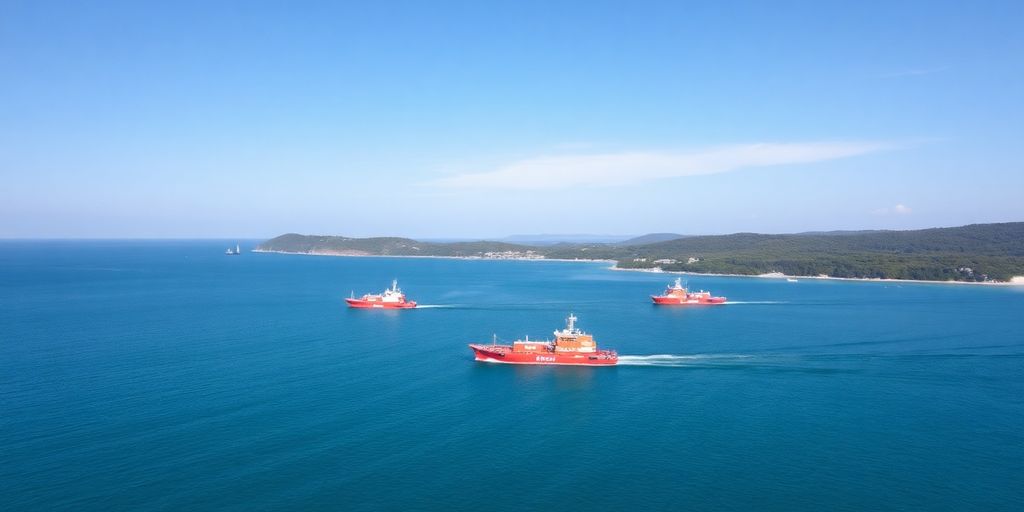Following a significant oil spill in the Kerch Strait, the Bulgarian government is working to reassure the public and the tourism industry about the potential impact on the summer tourist season. Officials assert that the oil spill from the recent collision of Russian tankers will not reach Bulgarian shores, despite concerns raised by scientific institutions.
Key Takeaways
- The Bulgarian government claims there is no imminent danger from the oil spill.
- The spill occurred after two Russian oil tankers collided, releasing approximately 5,000 tonnes of oil.
- Tourism officials are concerned about the potential impact on Bulgaria’s tourism sector, which contributes significantly to the economy.
Background of the Incident
In December, two Russian oil tankers collided in the Kerch Strait, leading to a substantial oil leak. The Russian Academy of Sciences has indicated that some of the spilled oil could potentially reach the coasts of neighboring countries, including Bulgaria. This incident marks a significant environmental concern, as it is the first time such a large quantity of oil has been spilled in this region.
Government Response
In response to the spill, Bulgarian Environment Minister Manol Genov has downplayed the risks, stating that there is no evidence to suggest that the oil will reach Bulgarian waters. He emphasized that the government is closely monitoring the situation and is prepared to take necessary actions if required.
Tourism Minister Miroslav Borshosh has also addressed the media reports surrounding the spill, labeling them as "malicious" and detrimental to the local tourism industry. He reassured stakeholders that the government is committed to maintaining Bulgaria’s reputation as a safe tourist destination.
Economic Implications
Tourism is a vital sector for Bulgaria, accounting for approximately 7% of the country’s GDP. The industry has faced challenges in recent years due to various environmental concerns, including:
- A burst sewer pipe near Varna, a major tourist hub.
- Fears of pollution following the Kakhovka dam explosion in Ukraine.
- The recent oil spill adds to the list of challenges facing the tourism sector.
Despite these challenges, Bulgaria is optimistic about attracting more tourists from Romania and Moldova, as well as increased visitors from Greece to its mountain resorts, especially after joining the Schengen Area on January 1, 2025.
Conclusion
As the summer tourist season approaches, the Bulgarian government is taking proactive measures to mitigate fears surrounding the Black Sea oil spill. By assuring the public and the tourism industry of the safety of Bulgaria’s waters, officials hope to preserve the country’s status as a popular travel destination. The situation remains fluid, and ongoing monitoring will be essential to ensure the protection of Bulgaria’s coastal environment and its vital tourism sector.






